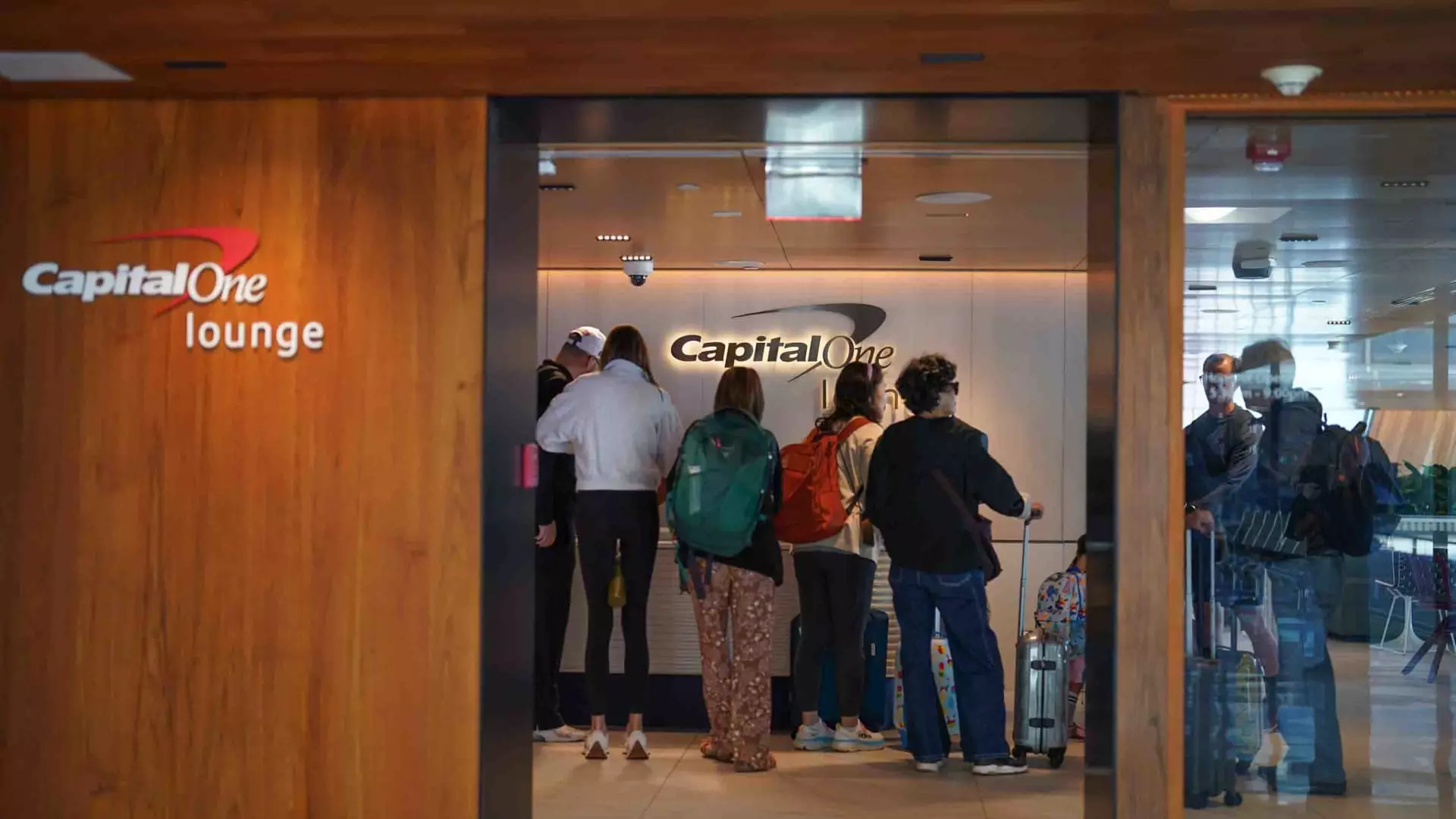As air travel becomes more accessible, the experience of flying has simultaneously shifted into a dichotomy of lavishness and limitation. While airplane tickets have seen a decline in prices, the cost of comfort at the airport has risen to new heights. Recently, Capital One made headlines by imposing stricter regulations around access to its airport lounges, showcasing the ugly side of consumerism in the travel sphere. This move, steeped in a dense fog of exclusivity, leaves one to ponder: How can comfort become more costly when connected with collective enjoyment?
For many travelers, the airport lounge represents a sanctuary, a brief respite from the chaos of delayed flights and crowded terminals. However, Capital One’s new policy seems to discourage the warmth of shared experiences by charging for guest access and raising fees for additional cardholders. The introduction of a $125 annual fee for each additional cardholder completely transforms the concept of shared luxury into a transactional relationship, forcing patrons to reconsider how they engage with these spaces.
The Price of Exclusivity
Capital One’s assertion that they need to protect the “great airport lounge experience” speaks volumes about the desired atmosphere they wish to foster—one that prioritizes exclusivity over accessibility. To unlock the benefits reserved for true premium members, customers must now hit a staggering $75,000 spending threshold just to enjoy the company of more than one guest. This marks a grave departure from the spirit of hospitality travelers used to enjoy, where being part of a community of fellow flyers was encouraged rather than monetized at every turn.
One could argue that these price hikes serve as an effort to alleviate overcrowding, but what does that say about contemporary travel culture? Is the solution to limit access rather than expand amenities in response to growing demand? Such policies risk alienating loyal customers while feeding into a capitalist cycle of privilege that marginalizes the very demographic that helped create a vibrant airport lounge scene in the first place.
The Influence of Other Players
Capital One’s decision to align itself with the exclusivity framework popularized by elite brands like American Express and JPMorgan Chase is telling. Instead of seeking a more democratic approach—a vision centered around inclusivity—Capital One has chosen a path that mirrors the elitist tendencies of its counterparts. The rhetoric from the airline industry’s big players, including Delta Air Lines, American Airlines, and United Airlines, further indicates that this trend is not a singular phenomenon but rather an escalating race to create individual clubhouses for the affluent.
The illusion of choice is dangerously prevalent. With each financial institution raising the bar on access, it leads to a homogenized experience—unwelcoming and cold. The notion that bigger lounges and stricter guest policies improve customer experience is baffling. These brands seem to have sacrificed the organic relationship formed in shared spaces in favor of a more structured approach that might soon resemble a sterile waiting area.
The Ultimate Flight Dilemma
While the culmination of so-called perks has garnered significant attention, the unfortunate reality is that loyalty doesn’t come cheap. Those seeking a truly luxurious experience now face a grim reality where the lounge—the epitome of premium travel—is slipping further away from their grasp. Capital One’s recent shift is a microcosm of a broader societal issue where status is quantified and commodified.
This shift reflects an unsettling trend: As more travelers flock to the skies, the very notion of shared enjoyment and communal spaces is jeopardized. The airport, once a melting pot of cultures and experiences, is morphing into an environment dictated by wealth that divides rather than unites. In reality, a simple family trip now carries not only the burden of travel expenses but an increasingly intricate fee structure that fractures the ability for friends and families to share precious moments together.
If travel is to remain an enriching experience for all, it is imperative that companies like Capital One reconsider their priorities. No amount of luxury can replace the value of shared experiences. As the travel landscape evolves, let us hope that the spirit of togetherness rises above the cold calculations of exclusivity.

Leave a Reply